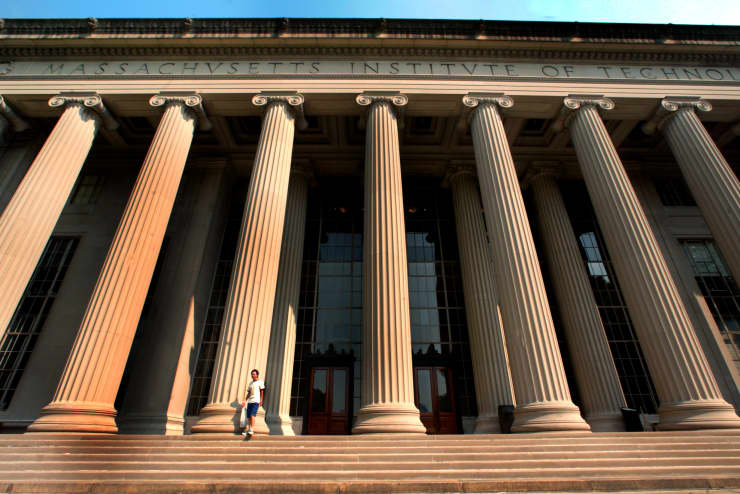- A study by scientists from the University of Bristol, Kyungpook National University, and the Massachusetts Institute of Technology finds China responsible for a recent spike in the emission of an illegal greenhouse gas.
- China accounted for 40% to 60% of the global increase in trichlorofluoromethane, or CFC-11, emissions between 2014 and 2017, the study says.
- CFC-11 was internationally banned under the Montreal Protocol because it destroys earth’s protective ozone layer.

Factories in China’s Shandong province.
There has been a rise in the emission of an illegal greenhouse gas that destroys the earth’s ozone layer — and China is responsible for “a substantial fraction” of that increase, according to a new study.
The research published on Wednesday found that China accounted for 40% to 60% of the global increase in trichlorofluoromethane, or CFC-11, emissions between 2014 and 2017.
Emissions of the gas came primarily from the Chinese northeastern provinces of Shandong and Hebei, according to the study.
Scientists who conducted the study came from the University of Bristol in the U.K., Kyungpook National University in South Korea, and the Massachusetts Institute of Technology in the U.S.
Scientists who conducted the study came from the University of Bristol in the U.K., Kyungpook National University in South Korea, and the Massachusetts Institute of Technology in the U.S.
Their research built on earlier studies about the spike in CFC-11 emissions into the atmosphere after 2013 by giving details on the geographic origins of those increases.
The latest study also confirmed media and activist reports that China is behind the emissions.
“Several considerations suggest that the increase in CFC-11 emissions from eastern mainland China is likely to be the result of new production and use, which is inconsistent with the Montreal Protocol agreement to phase out global chlorofluorocarbon production by 2010,” the scientists wrote in the abstract of the study.
The Montreal Protocol is an agreement signed by all 197 member states of the United Nations — including China — to regulate the production and consumption of chemicals that harm earth’s protective layer.
The latest study also confirmed media and activist reports that China is behind the emissions.
“Several considerations suggest that the increase in CFC-11 emissions from eastern mainland China is likely to be the result of new production and use, which is inconsistent with the Montreal Protocol agreement to phase out global chlorofluorocarbon production by 2010,” the scientists wrote in the abstract of the study.
The Montreal Protocol is an agreement signed by all 197 member states of the United Nations — including China — to regulate the production and consumption of chemicals that harm earth’s protective layer.
The treaty has led to “a significant reduction” in harmful gases such as CFC-11, which then allowed the damaged ozone layer to heal, according to a report by Canadian newspaper National Post.
Last year, a report by The New York Times found that Chinese factories had ignored the global ban on CFC-11 under the Montreal Protocol.
Last year, a report by The New York Times found that Chinese factories had ignored the global ban on CFC-11 under the Montreal Protocol.
They had continued to make and use the chemical because it’s a cheaper material to produce foam insulation for refrigerators and buildings.
Non-governmental activist group Environmental Investigation Agency reported last year similar findings as the Times based on its own research.
Non-governmental activist group Environmental Investigation Agency reported last year similar findings as the Times based on its own research.

